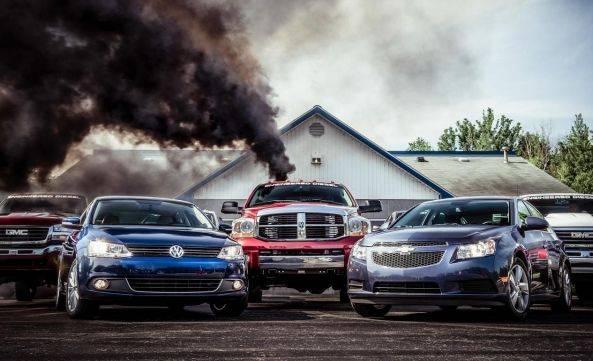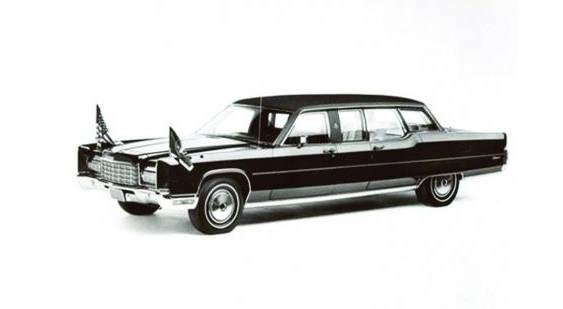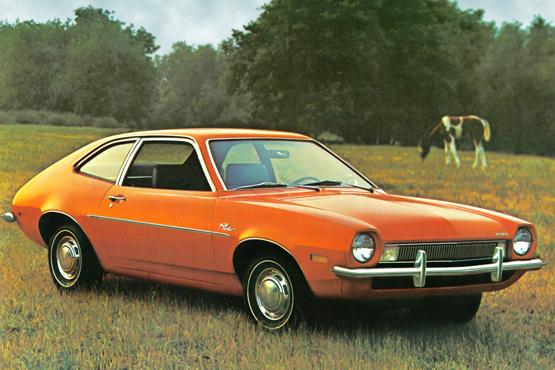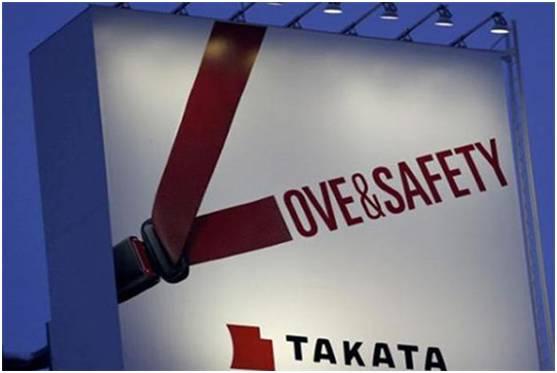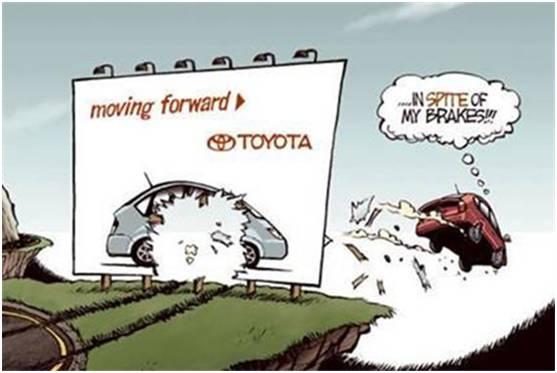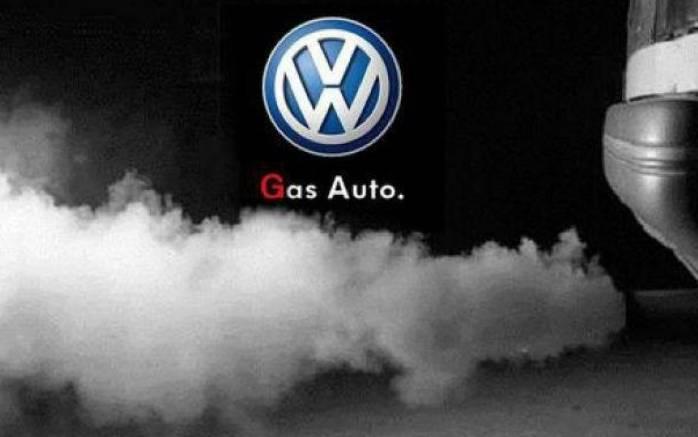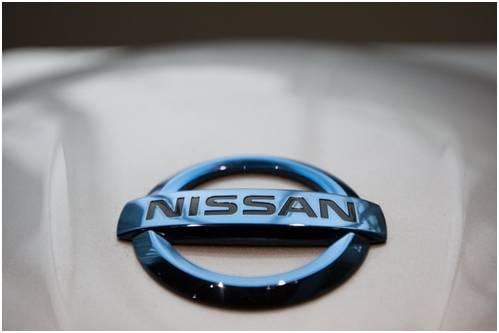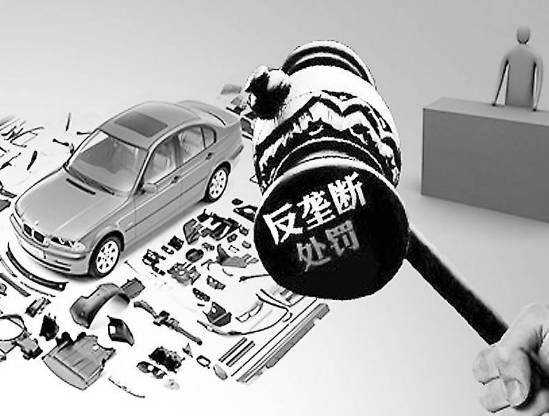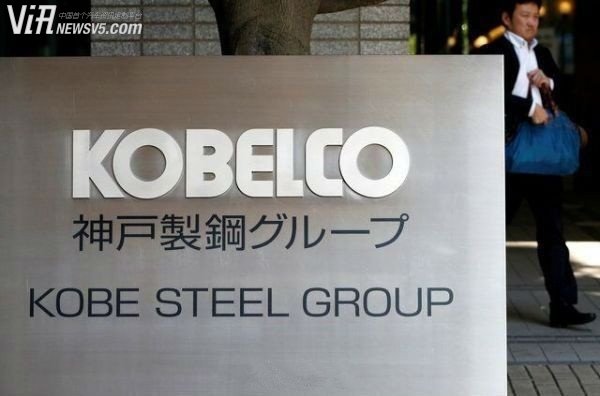There are sayings in the sayings, "taking history as a mirror to know the truth." Car forecasters summarized the “XX†scandals that resulted from the eight developmental speeds in the history of the world’s automobiles in the past 50 years. The world automobile industry has gone through a hundred years of development. As a heavy industry, the automotive industry has gone through four stages of development, namely, product invention, product development, rapid expansion of output, and maturity of the market based on renewed demand. From the perspective of the overall development, since the 1970s, the world automobile has entered a mature market stage focusing on updating demand, and this stage has also become a period of rapid growth of the automotive industry. Although the overall industrial development was relatively stable, the pattern was uneven. The automobile industry dominated by the early British heavy industry was prosperous and gradually turned to be led by the United States, then to the ever-increasing scale of Japan’s automobiles, and to the multinational countries that are present today. The pattern of automobiles that go hand in hand and compete with each other. However, when we look closely at the developments and changes, it is not difficult for us to find that every time a company faces transformation and power, it seems that all of them have fallen into a "hidden illness" and hope that they will slowly digest the power. However, they are often counterproductive. The problems caused by these flaws almost all show the development of the butterfly effect. As a result, the corporate reputation is damaged and the profits are greatly reduced. The accumulated period of time also falls short. There are sayings in the sayings, "taking history as a mirror to know the truth." The following are the eight events that occurred when the auto companies figured out the speed and efficiency of development. 1972 Ford Tank Explosion In 1972, 13-year-old Richard Greenshaw was riding a Ford Pinto in normal driving. The car suddenly slowed down, stopped, and was rear-ended. After being hit, the fuel tank exploded and gasoline spilled, causing the car to further catch fire and explode. The driver died on the spot, and 90% of the area was burned by Little Green. The plaintiff’s lawyer filed a lawsuit against Ford Motor Company. They pointed out that the accident was caused by a mistake in the design of the car. Since the fuel tank is installed in the lower part of the rear seat of the vehicle, it is only a little over 8 centimeters away from the clutch. Once a medium-strength collision occurs, it can cause an explosion. In fact, Ford Motor Company conducted a series of crash tests during the design of the Pinto model, and some of them still have image data. The test clearly shows that if there is a collision, the interior of the car will be full of gasoline flowing from the explosion tank. Previously, Ford’s two engineers had clearly stated that they would install anti-shock protection devices in the fuel tanks, and each vehicle would therefore need to increase the cost of 11 US dollars. But Ford’s calculations made the decision not to install the additional device and not to do so for at least two years. This is what they do: If you want to produce 11 million home cars and 1.5 million trucks, the cost of adding this extra device is $137.5 million. According to statistics, the 70th and 80th years of the last century were key times for the rapid rise of American automobiles. At this stage, the rapid development of the Ford Motor Company surpassed half of the total vehicle size in the UK in only a few years. Ford Motors is one of the best. At that time, controlling profits had become a factor that must be considered when Ford took a big step, but it was precisely the negative impact of the control costs on details that not only allowed Ford to make a large-scale recall, but also greatly reduced its credibility. 1999 universal tank fired to make astronomical compensation In 1999, the High Court Judge Williams made a judgment that the defendant, General Motors, was responsible for a traffic accident and that he would have to pay the victim a compensation penalty of US$ 1.09 billion. It is understood that the car that caused the traffic accident was the Chevrolet sedan produced by the United States General Motors Corporation in 197. The distance between the tank and the bumper of this car was too short, only 25 centimeters, which caused the car to be exploded after being hit by a fuel tank explosion. Fire; safety design should be to install the fuel tank above the axle or a shielding device between the fuel tank and the rear of the vehicle. However, the location of the automobile fuel tanks installed by General Motors from 1979 to 1983 has potential safety hazards. The company fully understands that its products will cause traffic accidents, but it has not taken action due to the need to spend more on design changes. . After the conclusion of the second instance verdict, the victim’s lawyer Panis stated that the plaintiff accepted the ruling of the Los Angeles Supreme Court. In fact, this case is not a question of money if GM agrees to withdraw the same type of car it produced between 1979 and 1983. The plaintiff can reduce the amount of compensation from US$1.09 billion to US$300 million. However, General Motors rejected the proposal and claimed that the products it produced had met the standards set by the relevant US agencies. The company's lawyer, Heilbronn, said: "General Motors is not quite foolhardy about its economic interests. We don't think there is anything wrong with the car's design. The tank's location is very safe. The only reason for the fire was a fierce collision. In the end, the evidence in the case was conclusive and General Motors compensated the victim, but the amount of compensation for the original verdict was too high, from the original $4.8 billion to $1.09 billion, but this figure has still become a product of American history. The maximum amount of compensation for personal injury caused by unreasonable design. 2008 Takata Airbag Hidden Trouble Highlights Takata was established in 1933 and started as an industrial textile company. It began production of airbags in 1987 and gradually developed into the world's second largest manufacturer of airbags, occupying around 20% of the global airbag and seat belt market. In November 2008, Honda recalled 4,000 vehicles for the first time because of the hidden dangers of Takata airbags. This led to the opening of the recall of Takada airbags for nearly a decade. The recall started from the US market and gradually spread to many countries and markets around the world. Up to now, the number of vehicles recalled worldwide due to Japan's Takata airbag problem has reached 120 million. Vehicles involved in accidents killed 16 people and injured more than 1,000 people. Airbags are one of the key components in automobile manufacturing and therefore involve the entire downstream automobile manufacturing chain. There are many car companies that cooperate with Takada, so the impact caused by airbag safety is very extensive. The inspection team set up in the United States discovered that its products were flawed during the investigation process. However, the senior management of Takata has been misreporting and even falsifying the evidence of certain airbag test data. In February 2017, faced with evidence collected by various investigation teams of the US, Takada Japan pleaded guilty to fraud in the course of airbag sales in the United States and agreed to pay US$1 billion in criminal fines to reach a settlement agreement with the U.S. Justice Department. In the same year in June of the same year, Takada’s US subsidiary filed for bankruptcy protection in Delaware with liabilities of up to US$50 billion. Japan’s parent company filed for bankruptcy protection with the Tokyo District Court in the same period. Subsequently, the Tokyo Stock Exchange confirmed Takata's stock delisting on July 27, 2017. 2009 Toyota "Brake Door" Since 2009, various types of Toyota's models have had an automatic acceleration problem due to accelerator pedal failure, resulting in multiple casualties. A typical case is a 49-second alarm recording from an accident vehicle. A Lexus E350 car accelerates on a freeway near San Diego, California. The pedals were stuck, and the car was destroyed. As a result, the highway patrolman Marc Saleh and his wife, daughter, and his wife and brothers were killed in a total of four people. This accident triggered the global recall of Toyota Motor Corp. and eventually resulted in the actual recall of the vehicle. Up to 9 million vehicles. After the turmoil, industry insiders commented that Toyota accelerated its development during the financial crisis, as the development of the US's local auto industry was in trouble. The design of the vehicle was often based on a professional perspective. It did not fully consider the driving habits of consumers in various countries and whether it can Simply and quickly grasping the operating characteristics of the Toyota models has laid a hidden danger for the repeated recall events, resulting in accidents caused by misunderstandings or other reasons that lead to wrong or stampede. On March 19, 2014, the final solution to the incident ended with an agreement between Toyota and the U.S. Department of Justice regarding the amount of civil lawsuit payments. The settlement agreement (including a deferred-prosecution agreement) pointed out that Toyota Motor Corporation must pay a settlement of US$1.2 billion (about 7.47 billion yuan) to settle the US federal prosecutor’s office to Toyota since February 2010. A four-year criminal investigation. 2015 Volkswagen exhaust valve On September 18, 2015, the U.S. Environmental Protection Agency and the California Air Resources Board issued an announcement that some of Volkswagen’s products used software-controlled methods to counterfeit emissions in the United States. A total of approximately 482,000 diesel vehicles were affected. However, after the exposure of the US public exposure to the diesel fuel cheating scandal, its impact quickly spread to the world. The German government subsequently asked the public to provide evidence to prove that they did not manipulate emissions tests in the local market. The European Commission and relevant US agencies also stated that they are approaching the company on the issue of emissions. Subsequently, South Korea, Canada, Italy, and Mexico have started to investigate their own Volkswagen. . Immediately on September 21 and September 22, Volkswagen's share price plunged close to 20%, making its market value evaporate by about one-third compared to September 18, which is about 25 billion euros. At the same time, the share prices of European and American automakers have fallen because investors are concerned that these allegations may involve other automakers. Since the 90s of last century, the German car companies have gradually moved to the forefront of the automobile development pattern. The public once became the largest super car company in the world's automobile market. However, under this background, the fast-growing VW Group is very hard to be willing. At this time, major changes were made, and the interests and scale became an issue that the Volkswagen Group at the time valued. Nissan started to use "unqualified employees" to inspect the vehicle in 2017 On September 18, the Japanese Ministry of Land, Infrastructure, Transport and Tourism conducted a routine inspection of Nissan's vehicle assembly plant and found that the safety inspection was actually performed without a qualified “undocumented personâ€, and the “qualified seal†was borrowed only for public use. With further investigation, the truth of the incident has become more and more alarming. In fact, Nissan has such “little tricks†in all six vehicle assembly plants in Japan. After the incident was exposed, Nissan insisted that the occurrence of a similar situation just forgot to verify the relevant qualifications of employees was caused by the negligence of the staff. There was no large-scale fraud. However, this response has not received the support and trust of the mainstream Japanese media and the public. Instead, it has evoked even more heightened condemnation. In the face of public pressure, Nissan’s high-level attitude has also undergone a 180-degree shift. Nissan Motor’s president Nishikawa Hirose held a press conference on October 2 to apologize to the public and stressed that it will focus on recalling customers’ safety. All involved vehicles are re-inspected, and the company bears the cost of about 25 billion yen. Nissan applied for a recall from the Ministry of Land, Infrastructure, Transport and Tourism in Japan from January 2014 to September 2017. It produced 38 models such as “NOTEâ€, Selena and GT-R, which were manufactured and sold in Japan. Mitsubishi and Isuzu were also added. , Suzuki, Mazda and other 10 cars, a total of 1.16 million vehicles. At the same time, Nissan also stated that it had replaced the unqualified personnel. However, after a wave of turmoil, the Japanese Broadcasting Association NHK disclosed in a follow-up report after the incident that the outside world was shocked. Nissan's safety inspection staff at the Shonan Plant remained "uncertified." President Nishikawa Hirose held a press conference again, publicly apologized at the meeting, and announced an additional recall of approximately 34,000 vehicles produced from the 20th of the previous month to the current Wednesday. Meanwhile, Japan produced about 1,000 new cars each day. All factories were discontinued and the survey period was approximately one month. 2017 German giant monopoly penalized Prior to this, foreign media reported that three German companies Daimler, BMW, and Volkswagen had reached agreement on technology, production costs, suppliers, strategies, and even how to develop diesel engine exhaust gas treatment systems to eliminate competition. At present, Volkswagen and Daimler have surrendered to the German Antimonopoly Administration and acknowledged their participation in illegal monopolies, hoping to reduce the fines through voluntary disclosure. BMW denied this accusation. After being exposed by the local media, the stock prices of Volkswagen, Daimler and BMW plummeted, and they were even called "one of the largest monopolies in German economic history." According to the German "Mirror Weekly" report, since the 1990s, Volkswagen, Daimler, BMW, Audi and Porsche have "collaborated" in the areas of price and technology and have undermined the interests of competitors in other countries. The European Commission said recently that EU antitrust regulators are investigating these allegations. Industry sources said that under the investigation of the German Anti-Monopoly Authority, BMW, Daimler, and Volkswagen’s Volkswagen, Audi, and Porsche brands are likely to face large fines. Once convicted, it may be the largest monopoly case in the automotive industry. One of them will also have a great impact on the economic image of Germany. The above car companies have also been continuously questioned by the public. Today, the pattern of automobile development has been relatively stable, and the front camps of German car companies have begun to live on “wait and workâ€. However, monopoly clearly cannot be a powerful method for follow-up development. The seemingly empty vocabulary of change, innovation, and advancement has always been a link that companies can't escape. 2017 Kobe steel data fraud Japan's third-largest steel company, Kobe Steel, was exposed to the technical data of some of its products and shoddy to deliver customers. It tampered with the performance data of some aluminum products, including strength, and supplied them. It is understood that the Kobe Steel Institute falsified substandard product data and conducted it as early as 10 years ago. Kobe Steel in Japan? Heart éž äº (4) åµ Test 蜕 蜕 è°™æ° è°™æ° ? æ–° æž— æž— ç ´ ( ( ( ( ( ( ( ( ( ( ( ( ( ( ( (11) 鄹氖 鄹氖 è¨ è°è¡² è°è¡² è°è¡² è°è¡² è°è¡² è°è¡² è°è¡² è°è¡² è°è¡² è°è¡²Tomb ã“ ç¿ ç¿ ç¿ ç¿ ç¿ ã“ é„¹ 鄹 鄹 㓠鄹 鄹 鄹 鄹 9 9 9 9 9 9 9 9 9 9 9 9 9 9 9 9 9 9 9 9 9 9 9 9 9 9 é’’ é’’ é’’ é’’ é’’ é’’ é’’ é’’ é’’. About 4% of the company's annual production. The scandal at the Kobe Steel Institute may bring another huge blow to Japan’s reputation as a quality-winning manufacturer in the past years. According to industry experts, the incident is likely to trigger a large-scale recall by Japanese car companies. There are many reasons for this fraudulent incident, among which the credibility of the purpose of cost reduction is quite high. Some scholars have pointed out that the demand for high-purity metal refining products has been continuously improved, but the purity of high-purity metal refining design processes and professional equipment have been continuously upgraded. The cost of expenditure is the main driver of Kobe fraud. For a long time, the global market share pursued by Japanese manufacturing companies has gradually given way to the return on capital, and cost competition and profit competition have apparently become new goals for Japanese companies. Nu Tubing Coupling,Casing Tube,Octg Oil Pipe,Api P110 Casing Henan Dongfanglong Machine Manufacture Co., Ltd , https://www.dfloilm.com